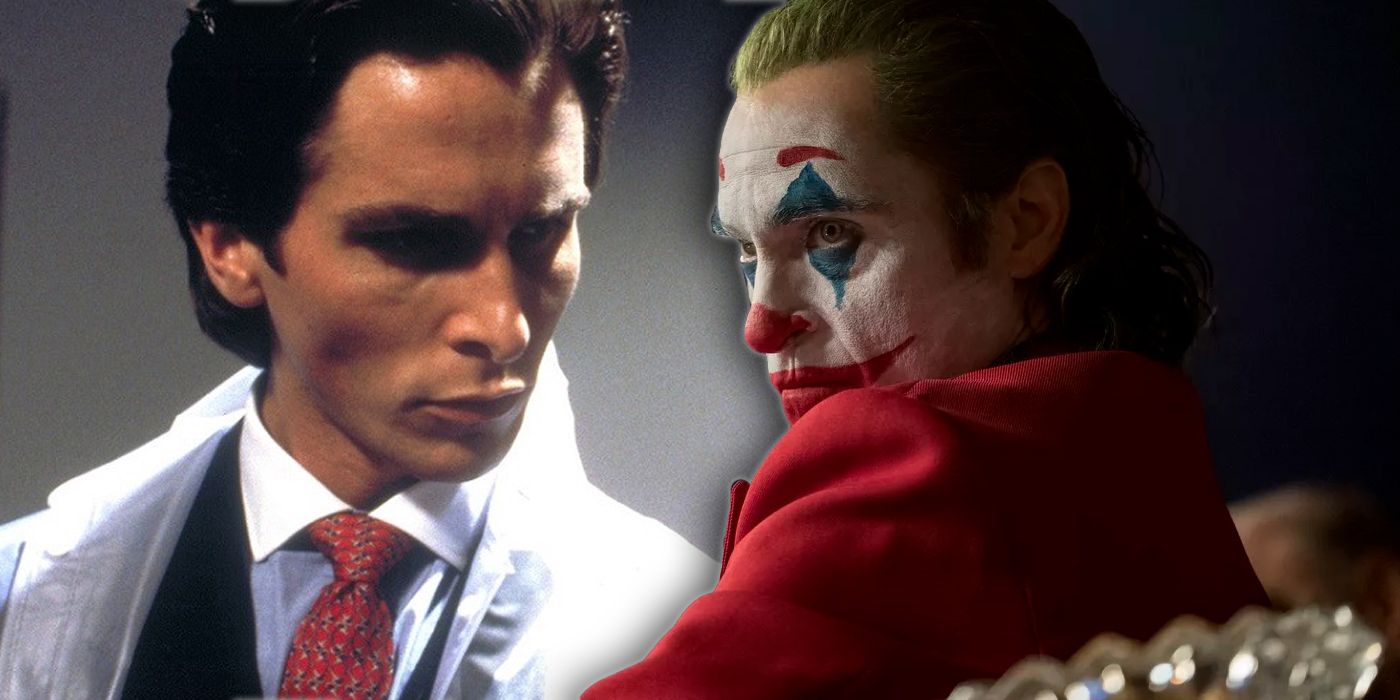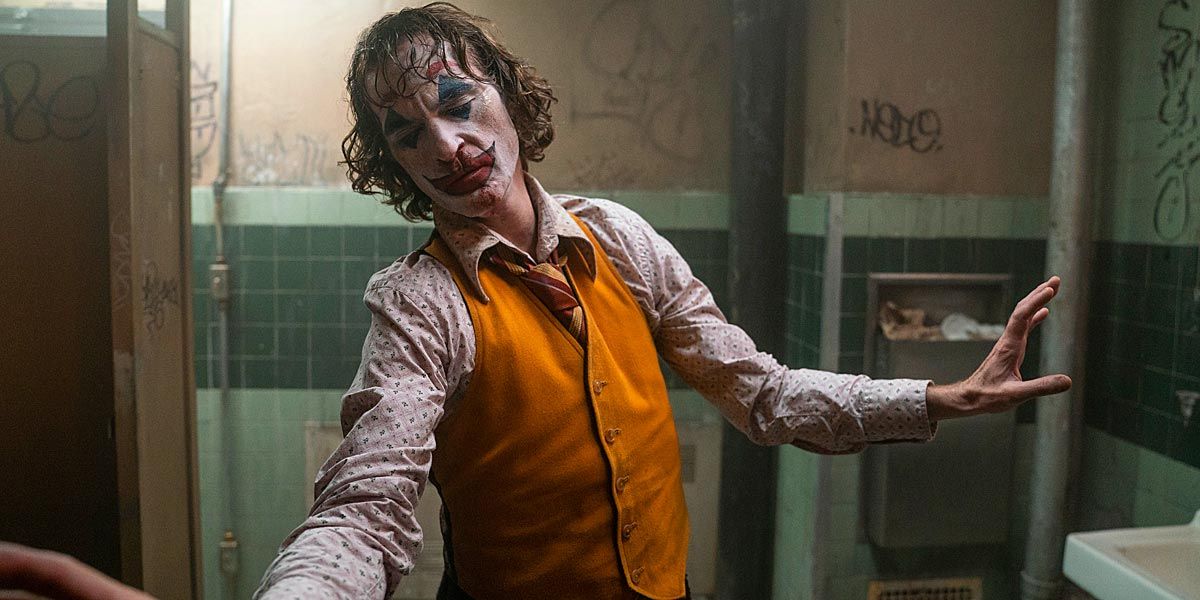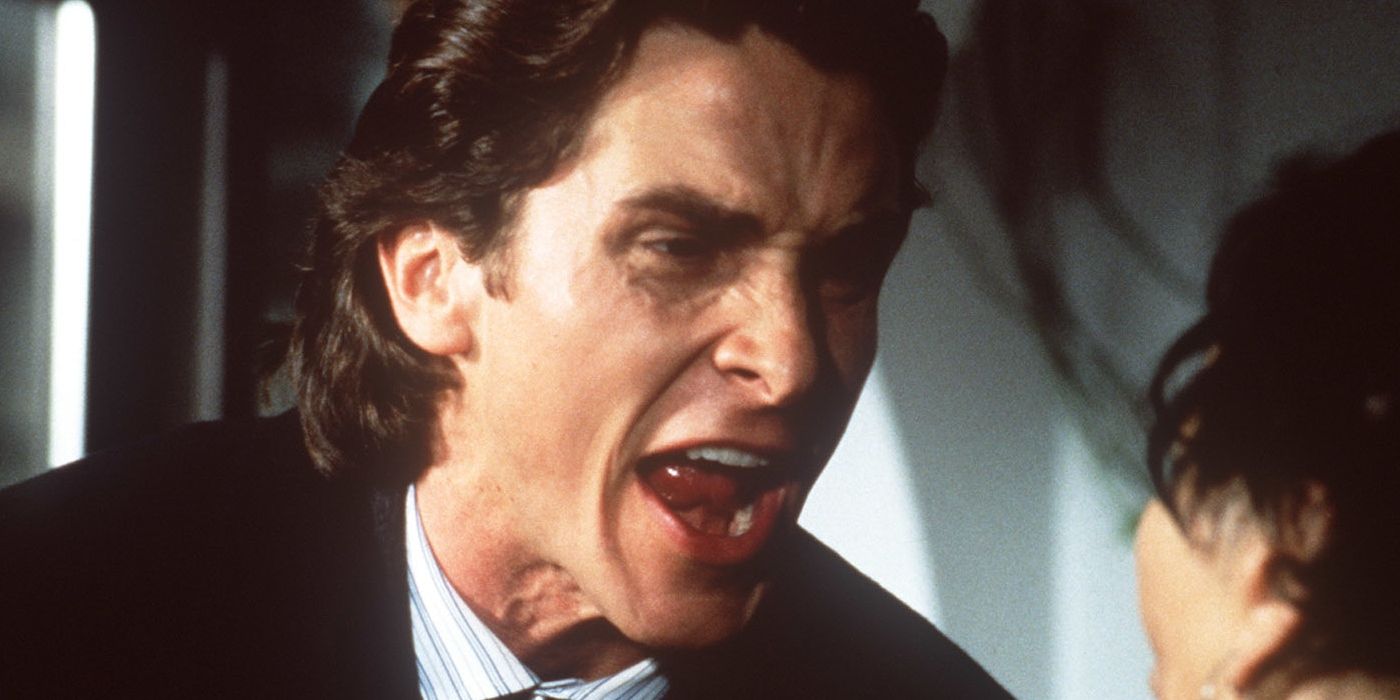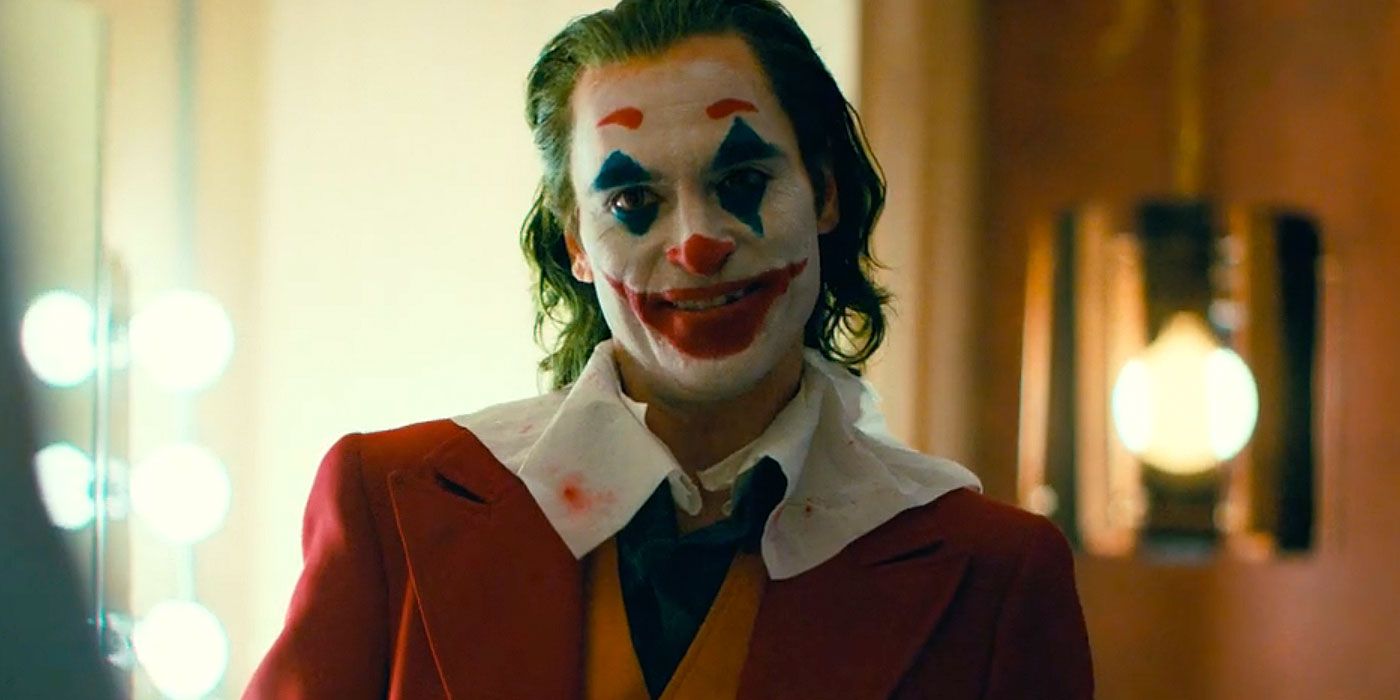WARNING: The following contains spoilers for American Psycho as well as director Todd Phillips' Joker, in theaters now.
Joker has dominated the cultural conversation around its record-breaking release. The film explores the degradation of Arthur Fleck's (Joaquin Phoenix) mental state as he becomes the titular homicidal clown. But for all of the film's attempts to explore certain aspects of society and the inherent tragedy of lashing out in violence, its larger points become muddled as it indulges in some of its darker moments.
Almost 20 years ago, another film, American Psycho focused on much of the same subject matter with a keener eye to the internal horrors and tragedy of thinking like a killer. While it ironically stars Christian Bale, a former Batman, as its titular madman, American Psycho is a better Joker movie than Joker.
Mad Man
Joker centers around Arthur Fleck, a troubled man living in a grimy, dark version of Gotham City. He's put upon from seemingly all angles. He has mental health issues, and often speaks about the apparently unrelenting anger at the core of his being. As the film progresses and he goes off his medication (thanks to budget cuts throughout the city for social services,) Arthur begins to lash out at a world that seems designed against him.
But while his actions accidentally inspire a breakout of violence throughout Gotham in the form of riots, his attacks become less "self-defense" and more vengeful and directed towards people who had, from his perspective, specifically wronged him. All the while, the film can't stop itself from rooting for Fleck and his journey, making him pitiable rather than contemptible.
American Psycho focuses on someone from a completely different way of life than the destitute Arthur. Patrick Bateman (Christian Bale) is a wealthy employee at a Wall Street investment firm. He lives alone, has a seemingly perfect life and in reality may be a serial killer who targets both people he knows as well as random women he meets within his life.
As his darker actions escalate, the film begins to leave it purposefully ambiguous whether or not Bateman's crimes are actually committed outside of his mind. But even when he realizes how severe his actions have become and he tries to confess to his crimes, his lawyer sees it as nothing but a demented joke - leaving him to continue on and keep killing, despite himself. Even at his lowest moments, we're never supposed to feel bad for Bateman, but can acknowledge the tragic irony of his situation, a monster who knows what he is but doesn't live in a world that could stop him.
The Confession
Both films take different approaches to the ideology that society is inherently broken and explore the effect that has on the protagonists. In Joker, Fleck strikes out at people he feels specifically wronged him. While Bateman's murder of his co-worker Paul Allen (Jared Leto) is motivated by jealousy, there's none of the self-righteous anger that fuels Fleck. When Fleck commits a violent crime, there's no introspection or internal conflict over his actions.
After his first three murders, he dances to a song only he can hear. There's no guilt or horror or surprise at his transformation into the kind person who would do these things. As the film continues, that lack of empathy actually grows as his reasons to kill devolve from "being genuinely physically threatened" to "being made fun of." This makes the Joker a harsher character, a troubled man who becomes a caricature of a murderer. He confesses to his crimes on the Murray Franklin (Robert De Niro) show, gleefully before adding another death to his kill-count. Still, the film roots for him, portraying him as a troubled but pitiable man instead of the unrepentant murderer he is.
While his disconnect with the world is present for most of the narrative, Bateman's crimes also escalate as the film continues. This all builds to the revelation of how he's turned Paul Allen's apartment into his "workshop" where he brings women and hides their corpses. But he shows restraint with his assistant Jean (Chloë Sevigny) and allows her to escape none the wiser to the danger she was in during a date.
When Bateman goes on a ballistic killing spree late in the film, he's seemingly cornered by police inside an office. He calls his lawyer and, in a moment mixed with sheer panic and genuine horror at himself, Bateman confesses to every crime he's committed (including some so grisly that they were left out of the film proper.) He doesn't seek absolution or forgiveness for his crimes, but it's apparent from his confession that he understands what he did was wrong, and he believes he should face some form of punishment for his crimes. There's guilt to his character. And yet, his colleagues play everything off like a joke, and his confession ultimately means nothing, which adds to the ambiguous nature of the film.
The Problem With Society
The biggest difference between the two films though is that Joker and American Psycho have very different interpretations of the world. Both films take place in the 1980s, an era where wealth disparity really began to become apparent in American society. Although Joker uses Gotham City as a stand-in, both narratives are obsessed with the New York City of the era. But whereas Joker tries to justify the anger inside people by pointing to society's faults and highlighting how it can push people into terrible crimes, American Psycho is more directed to the problems within a singular person leaking out and leaving a trail of death in its wake.
Joker loses track of the message it's trying to tell about troubled people. The film's talk about the class divide in Gotham is ultimately window dressing, with the question of Fleck's parentage becoming a more present factor in the narrative whenever the rich appear. Fleck, now fully in his Joker persona, murders someone on live-television. But instead of the world responding in horror as the late-night audience did, he's cheered in the streets as a riot breaks out, almost in his honor.
Although he will presumably spend a good deal of time inside Arkham Asylum for his crimes, Fleck has, for all intents and purposes, gotten everything he wants. He won. But Bateman, despite the happy trappings of his life and the blessings that wealth grant him, has mentally unraveled. He has lost. He doesn't get the catharsis that facing justice for his crimes would produce, and he's left alone within his own mind.
While American Psycho and Joker deal with similar ideas and subject matters, the former film has a better understanding of dark comedy, empathy and societal problems that makes it a stronger example of the kind of film Joker tries to be.
Directed by Todd Philips, Joker Stars Joaquin Phoenix, Robert De Niro, Zazie Beetz, Bill Camp, Frances Conroy, Brett Cullen, Glenn Fleshler, Douglas Hodge, Marc Maron, Josh Pais and Shea Whigham. The film is in theaters now.




